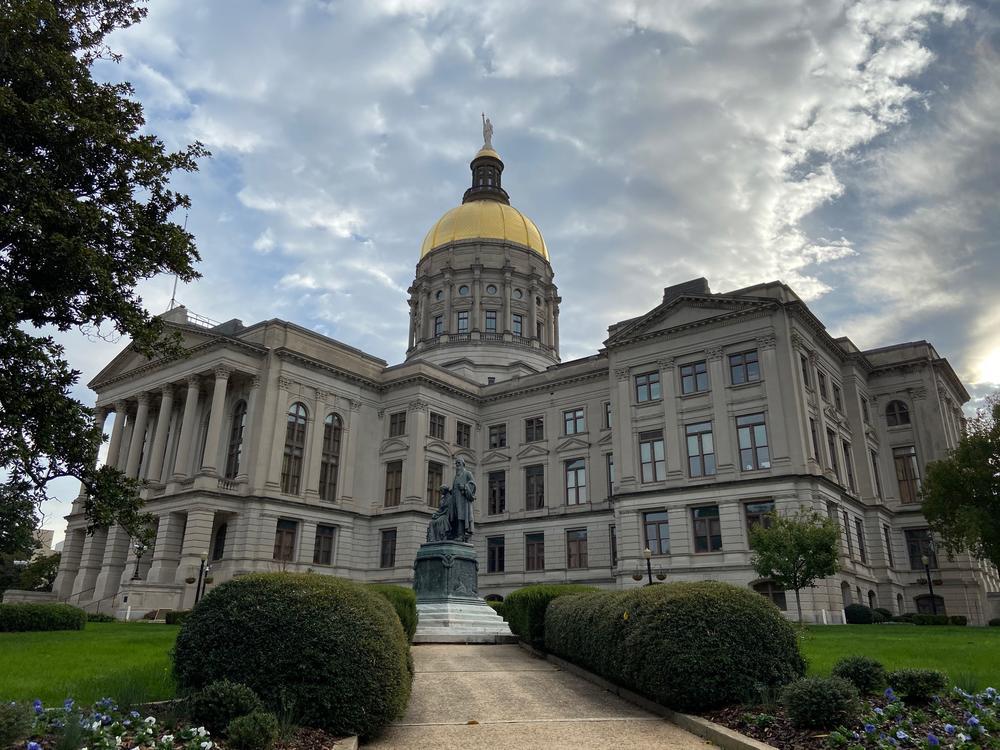
Section Branding
Header Content
House Passes Amended Budget With More Funds For Public Health, Education
Primary Content

The Georgia State House quickly passed an amended fiscal year budget that funds the state government through June 30, allocating $654 million in additional funds primarily to bolster public health and education.
After the 149-20 margin vote, it heads to the Senate.
House Appropriations Chairman Terry England (R-Auburn) told the chamber that there was a sense of urgency to make these changes in case the coronavirus pandemic forced the session to suspend for a period of time. In 2020, lawmakers were on hiatus from March until June because of an outbreak that infected several people.
The AFY budget adds $654 million from the original budget passed last year, and most of that new money goes to partially restore cuts made to the K-12 Quality Basic Education funding formula and other education programs, like providing 500 new school buses.
"Adjusting for stronger than anticipated revenues allows for a 60% restoration of the QBE reduction that we had to take as we were here in June [2020] in order to balance the budget," England said. "That's $567 million going back into QBE."
Over half of the state's $26.5 billion budget goes towards education and about a quarter to health care.
Gov. Brian Kemp asked state agencies to submit spending plans that did not increase funding levels after Georgia slashed about 10% from its 2020 budget in anticipation of revenue shortfalls because of the coronavirus pandemic, but remains "optimistic" about the numbers coming in.
With the extra money, the Department of Public Health will get $286,000 to hire a chief medical officer, a deputy commissioner of public health and a chief data officer to help with the COVID-19 pandemic, $18 million to modernize and update a database used for vaccine tracking and pandemic surveillance and continued funds for the Grady Regional Coordinating Center to monitor emergency room use.
After the vote, House Speaker David Ralston (R-Blue Ridge) said he was pleased with the speed and efficiency of the amended budget process, noting the "precarious situation" of the pandemic.
"You know, last year we had to suspend the session, and I think we resolved early on that we needed to get the amended budget done so that if we have this situation again, the state can function at least through the end of the fiscal year," he said. "So we emphasized 'full speed ahead.'"
On the topic of increased public health funding, Ralston grew emotional, noting that the coronavirus pandemic is still wreaking havoc on Georgians and that he lost two friends to the virus in the last 24 hours.
"Everybody's losing friends, family members, and so we have to keep that up on the front burner," he said.
Ralston asked state troopers to remove Republican Rep. David Clark from the chamber Tuesday for failing to abide by the House testing protocol that requires lawmakers to be tested for the virus twice a week.
Clark, who returned Thursday after finally using the free testing offered in the Capitol, originally compared his ejection from the House to the original 33 Black lawmakers in Georgia expelled by racist members of the General Assembly during Reconstruction and called Ralston a "dictator."
The House speaker said Thursday that he didn't have time for "foolishness" and said the Buford Republican's family should "seek out some help" and "intervene" with Clark's behavior. Clark's father-in-law, state Sen. Brandon Beach of Alpharetta, was one of the lawmakers infected with the virus last year that led to the session being suspended. The pair also signed on to lawsuits trying to overturn Georgia's elections.
"I don't have any patience for people who live in an alternate reality," Ralston said.
While some members of the House and Senate have tested positive for the virus and been excused from session, there has yet to be a larger outbreak in part because of the constant testing.
The next big task for House budget-writers will be the fiscal year 2022 budget, which begins July 1.
8.5.7
Correction
8.5.7

